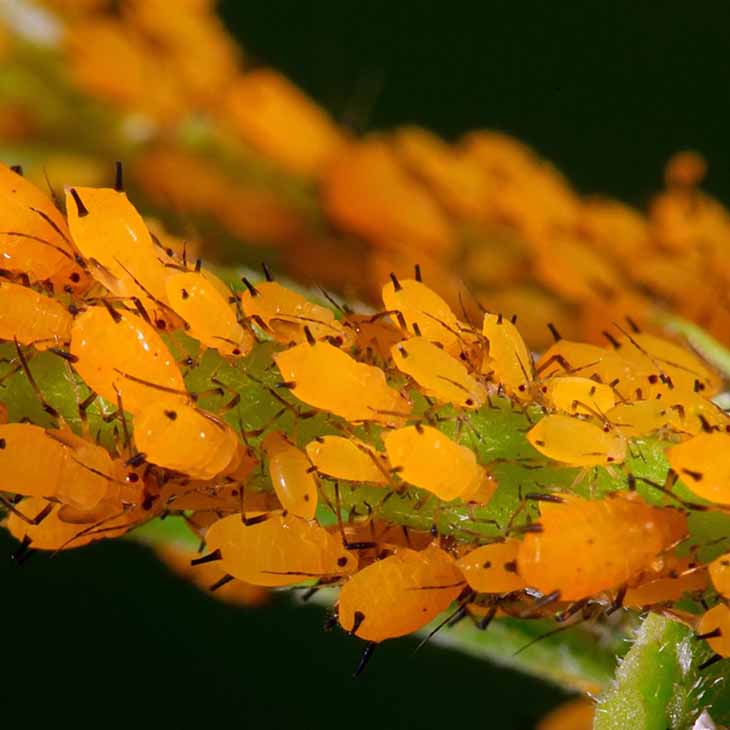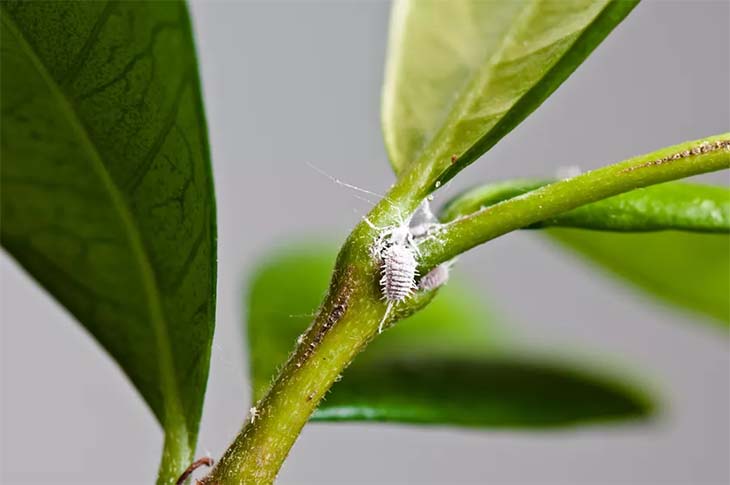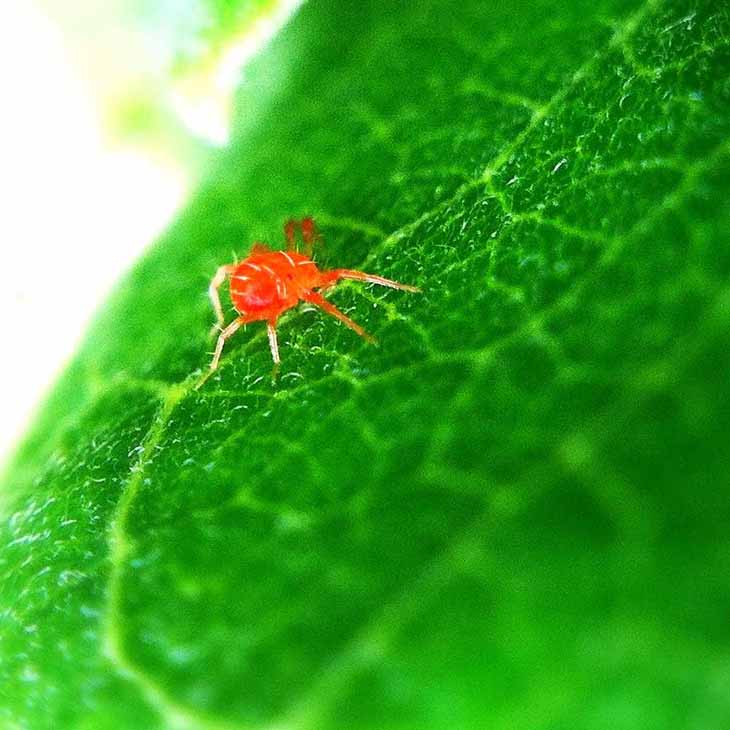
Mealybugs, aphids, caterpillars or red spiders are some of the unwanted pests that embed themselves in your garden and invade your plants. These pests can devastate your plants and damage them. However, you can protect your plantations and defeat these predators, thanks to natural tricks. Find out how to eliminate garden pests.
Eliminating garden pests without resorting to insecticides is possible. To do this, it is enough to adopt certain natural and effective tricks.
How to eliminate garden pests?
- Eliminate aphids from garden plants.


Yellow aphid – Source: spm
Aphids are enemies of plants, especially roses. To detect the presence of these pests in your garden, simply observe the foliage of your plants. If it is infested, you will notice that the leaves are deformed or curled in on themselves. Additionally, aphids secrete a sweet, sticky substance called honeydew. This substance attracts ants and fungi responsible for a cryptogamic disease called sooty mold.
To eliminate aphids from your plants, mix 3 tablespoons of black soap with a liter of water in a spray bottle. Spray the foliage with this solution, remembering the underside of the leaves , since that is where aphids hide. Repeat this operation for several days to overcome this infestation. You can also use coffee grounds which are a natural repellent. To do this, spray it at the base of the infested plants. Keep in mind that it should be dry, and remember to change it regularly, especially if it gets wet. Other natural products are also effective in controlling aphids, such as Marseille soap, garlic or even neem oil.
- Eliminate mealybugs from the garden


Mealybugs – Source: spm
Like aphids, mealybugs are biting and sucking insects that feed on plant sap and secrete the honeydew responsible for sooty mold. The latter causes a black, soot-like deposit that covers the plant’s foliage and blocks photosynthesis. The plants most likely to be affected by mealybugs are orchids, succulents or roses. To eliminate mealybugs , you can use white vinegar. To do this, mix a cup of white vinegar with a liter of water in a spray bottle and spray on the infected parts of your plant. Renew the operation until the complete eradication of these parasites.
Another trick is to use nettle manure. To do this, simply spray this natural insecticide on the foliage of your plants.
- Eliminate mites from the garden


Red spider – Source: spm
Red mites, also known as spider mites, are parasites that wreak havoc on plants in the garden, but also in the vegetable garden or vegetable garden, during periods of heat and drought. A soil poor in humus and rich in nitrogen fertilizer can also favor the proliferation of these pests. The garden plants most affected by a mite infestation are cyclamen, hydrangea or dahlias. Thus, in case of infestation, the foliage turns yellow and dries up.
To eliminate red spider mites, mix a teaspoon of powdered cayenne pepper in a container with a few drops of dish soap and a liter of warm water. Let the mixture sit overnight and strain through a fine sieve. Transfer this preparation to a spray bottle and spray on the foliage of your infested plant.
How to prevent the appearance of these pests in the garden?
- Remove weeds from the garden.
Weeds prevent your plants from taking full advantage of nutrients and light in the soil, but they also harbor pests. To eliminate weeds , it is not necessary to use chemicals. Baking soda is a natural herbicide that you can use in small areas. To do this, sprinkle a little of this multipurpose product on the places you want to weed, and spray with water. Note that you can substitute baking soda for salt. To do this, melt 200 g of salt in a liter of water and water your weeds with this natural solution.
- maintain the garden
It is important to remove wilted flowers and dead leaves from your garden to prevent the decomposition of these plant materials. This decomposition process creates a breeding ground for the proliferation of garden insects, fungi and cryptogamic diseases.
- Add beneficial insects to your garden.
Insects are not all enemies of your plants. Some beneficial insects are effective at keeping away pests that devastate your garden, such as ladybugs. These feed on aphids, mites, larvae and eggs of many garden pests.
With these tips you will protect your garden from pests that damage your plants.